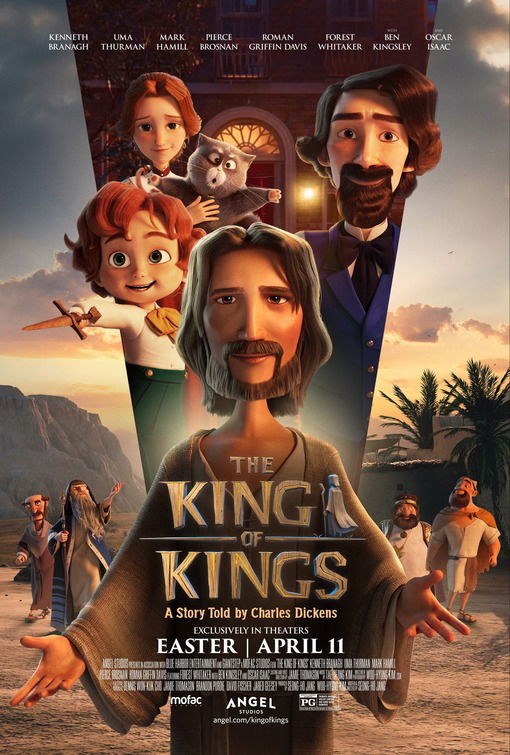“Seeking Salvation”

| None | Light | Moderate | Heavy | |
|---|---|---|---|---|
| Language | ||||
| Violence | ||||
| Sex | ||||
| Nudity |
What You Need To Know:
Set in Chicago in 1976, STOLEN SUMMER deals with an angst felt by many, whether children or adults. How do I get to heaven? How can I be sure? When young Pete O’Malley hears from Sister Margaret that he might go to Hell if he doesn’t shape up, Pete decides to assure himself a place in heaven by emulating the Apostle Paul. With this in mind, Pete visits the local synagogue and chats with Rabbi Jacobsen, who allows Pete to set up a lemonade stand outside the synagogue. Pete meets Danny Jacobson, the Rabbi’s son, and successfully convinces the young man of the need to convert. Only Pete isn’t so sure how that should happen.
By contrasting the Jewish and Catholic faiths, screenwriter/director Pete Jones explores the differences that separate us while underlining the basic humanity we all share. Traditional Catholic families of that era are slightly vilified, however, while Jewish families are portrayed in a far more positive light. The movie also comes to a politically correct conclusion that “all religions are the same.” Finally, the movie fails to portray what it truly means to have a relationship with God through Jesus Christ
Content:
(PaPa, C, B, PC, AB, FR, L, V, A, M) Pagan worldview with overt discussion of religious concepts such as conversion, faith, Heaven, Hell, and references to the Apostle Paul but “politically correct” conclusion that all religions are the same; slightly negative view of Roman Catholicism with Teacher-Nun and Catholic father portrayed as angry, and Catholic priest portrayed as impatient, while Jewish rabbi and family are portrayed as kindly, patient and understanding; a few obscenities (used only by father) plus several incidences of taking the Lord’s name in vain; father is a heroic firefighter who saves boy and implied death of an older women in house fire; no sex; no nudity; mild alcohol use (father drinks beer alone and with older son); and, son is disobedient to his impatient, angry father and challenging marital relationship but one where problems are worked through.
More Detail:
Pete’s “mission,” as he calls it, quickly stirs up anger, not only among the synagogue members, but in his own family as well. Joe O’Malley (Aidan Quinn), Pete’s father, warns his son never to visit the synagogue again, but Pete knows his mission is more important than obeying his father, especially since Dad doesn’t like anyone who’s not Catholic. Then, Pete meets Danny Jacobson (Mike Weinberg), the Rabbi’s son, and successfully convinces the young man of the need to convert. Only Pete isn’t so sure how that should happen.
Pete consults with Father Kelly (Brian Dennehy) about the requirements for confirmation, the closest thing he understands to be salvation. If Danny passes a number of “tests,” the priest informs him (to simplify things for the boy), he will be confirmed. Pete dutifully informs Danny, then sets about creating the kind of tests he feels are worthy of confirmation: rock skipping, wind sprints and ultimately, swimming out to a buoy in the lake. Danny completes all the tests except one. Then, Pete learns his friend has leukemia, and the mission becomes vitally important.
Set in Chicago in 1976, STOLEN SUMMER deals with an angst felt by many, whether children or adults. How do I get to heaven? How can I be sure? By contrasting the Jewish and Catholic faiths, screenwriter/director Pete Jones explores the differences that separate us while underlining the basic humanity we all share. Traditional Catholic families of that era are somewhat vilified, while Jewish families are portrayed in a far more positive light. Aidan Quinn is superb as the frustrated, angry Joe O’Malley, as is his wife, played by Bonnie Hunt. Kevin Pollack portrays a remarkable rabbi, full of compassion and depth of understanding that far surpass many clergy. Both child actors do a fine job, with Jones’ stellar direction made clear throughout.
Unfortunately, Jones fails to portray what it means to have a true relationship with God, and thus be assured of a place in heaven. It isn’t about where we worship on Sunday (or, in this case, Saturday), but rather, who we worship, and whether that worship is sincere. Faith also isn’t about rules: it’s about a relationship with the living God who offers that freely to one and all. There are no tests to get into heaven, and we are free to acknowledge our wrongdoing and make amends, as God leads us, because Jesus Christ paid the price, once and for all, and his gift is open to everyone – no matter what our religion.
Although Pete’s story is endearing, Jones’ theology stumbles at the end of the film when Pete concludes that he should pray “to Danny.” Sadly, this sentimentality has no basis in reality, or in the teaching of any religion. Too bad Pete’s father doesn’t have the time, or the inclination, to educate his son about the true meaning of their beliefs. Or, perhaps he doesn’t understand it himself?
Furthermore, Pete’s conclusion that “all religions are the same” is but another twist on the popular cliché that it doesn’t matter what you believe, as long as you are sincere in the practice of that belief. The Nazis were under that illusion, too.


 - Content:
- Content: 




